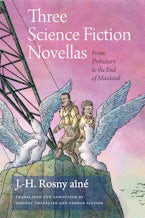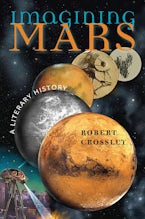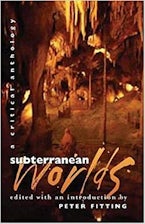- Home
- Early Classics of Science Fiction
- fiction
- The Centenarian

The Centenarian
Or, The Two Beringhelds
Translated by Danièle Chatelain , George Slusser
Series: Early Classics of Science Fiction
Sales Date: 2006-07-10
372 Pages, 5.50 x 8.50 in
First English translation of a classic gothic novel
Written for serial publication in 1822 under the pseudonym Horace de Saint-Aubin, this Faustian tale by Balzac has never before been available in English. More than a long-lost curiosity by an important writer, The Centenarian is also a seminal work of early science fiction, crucial to understanding both the development of the genre and the craft of this great author. Beringheld, a 400-year-old "mad scientist," discovered the fluid necessary to human life, but he must extract the vital fluid of others to enlarge his own powers. Balzac intertwines the mythic and the modern in ways that would prove enormously influential to science fiction. Like Mary Shelley's Frankenstein, this novel bridges the gap that separates alchemy and magic from the practice and problems of science. It is also crucial to an understanding of Balzac's oeuvre, as it anticipates significant themes of power, knowledge, and secrecy. This Wesleyan edition features notes, appendices, and a critical introduction.
Introduction
Translator's Notes
Balzac's Centenarian and French Science Fiction
THE CENTENARIAN, or The Two Beringhelds
Foreword
Chapters One through Twenty-Nine
First Editor's Note
Conclusion
Afterword
Notes
About the Author and the Editors
Honoré de Balzac (1799-1850) is widely considered one of the greatest French novelists of the 19th century. His best-known works include Lost Illusions, Cousin Bette, and Old Goriot. Danièle Chatelain is professor of French, University of Redlands, and author of Perceiving and Telling: A Study of Iterative Discourse (1998). George Slusser is professor of comparative literature and curator of the Eaton Collection at the University of California, Riverside. Chatelain and Slusser co-edited the essay collection Transformations of Utopia: Changing Views of the Perfect Society (1999), and live in Highland, California.
"An afterword offers an insightful discussion of the novel as an adumbration of many masterpieces and characters in other of Balzac's acknowledged creations. Perhaps most interesting, the translators make the case that The Centenarian lays the philosophical foundation of Balzac's 'science' (including Mesmer), which brought a number of his geniuses to failure. All of this, along with the excellent translation (with its appropriate footnotes), makes this an enchanting and worthwhile publication. Highly recommended."
~Choice
""The Centenarian is remarkable in its exploration of then-new scientific concepts and then-current themes (including those common to Gothic novels), and for its anticipation of elements of future SF as well.""
~INFODAD.com
""An afterword offers an insightful discussion of the novel as an adumbration of many masterpieces and characters in other of Balzac's acknowledged creations. Perhaps most interesting, the translators make the case that The Centenarian lays the philosophical foundation of Balzac's 'science' (including Mesmer), which brought a number of his geniuses to failure. All of this, along with the excellent translation (with its appropriate footnotes), makes this an enchanting and worthwhile publication. Highly recommended.""
~Choice
""With the publication of the first English translation of Balzac's disavowed 1822 novel, the Wesleyan 'Early Classics of Science Fiction' series continues to rewrite the history of the genre. The work is...undeniably fascinating both as a luminal science-fiction text occupying the mostly uncharted cusp between supernatural gothicism and 19th-century science and, with a cliff-hanger ending in the catacombs of Paris, as early hack-work by the writer soon to be the leading example of French social realism. ...The translation also includes helpful notes and an afterword that intriguingly suggests how this early novel may presage some of Balzac's later characters and themes.""
~Library Journal website
"In The Centenarian, Balzac first discovered his artistic stride, first amalgamated the distinctive preoccupations of French science fiction, and first forged a philosophical framework for his Comédie humaine. This translation is a revelation."
~Eric S. Rabkin, Professor of English, University of Michigan
"In The Centenarian, Balzac first discovered his artistic stride, first amalgamated the distinctive preoccupations of French science fiction, and first forged a philosophical framework for his Comédie humaine. This translation is a revelation."
~Eric S. Rabkin, Professor of English, University of Michigan
"The Centenarian is a very lively read. This translation throws new light on the development of realism, the Faust myth, and the origins of science fiction.""
~Allen Thiher, author of Fiction Rivals Science: The French Novel from Balzac to Proust








